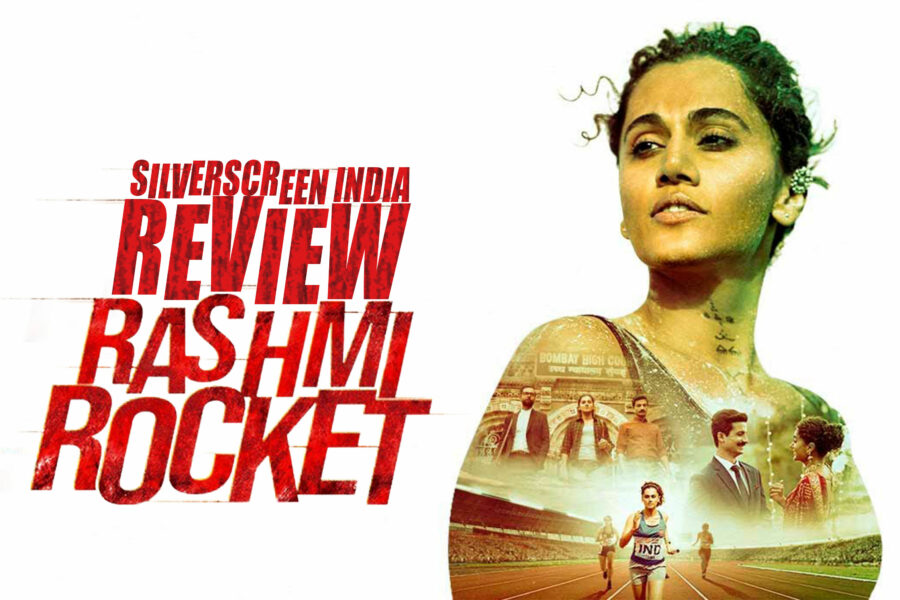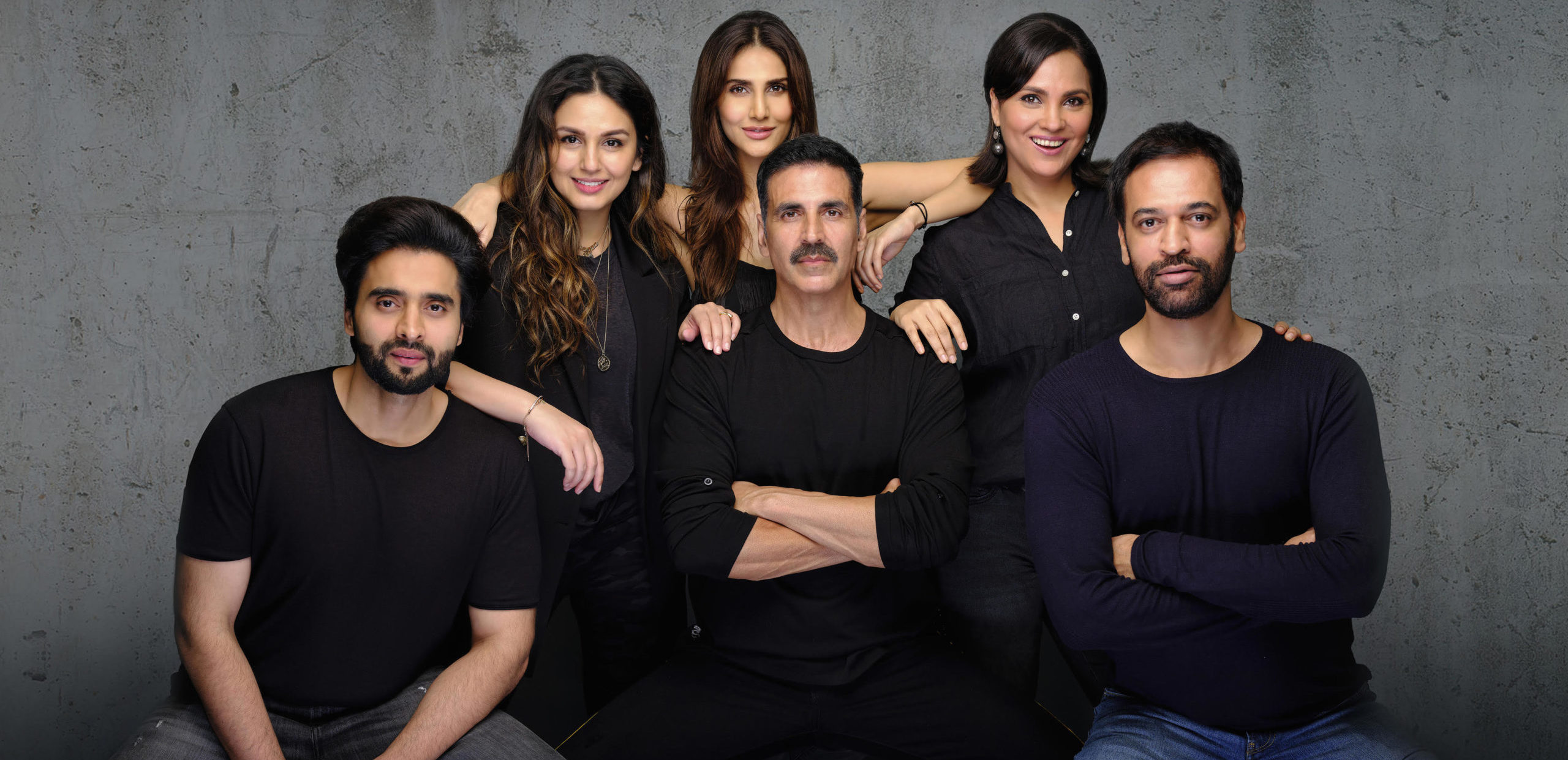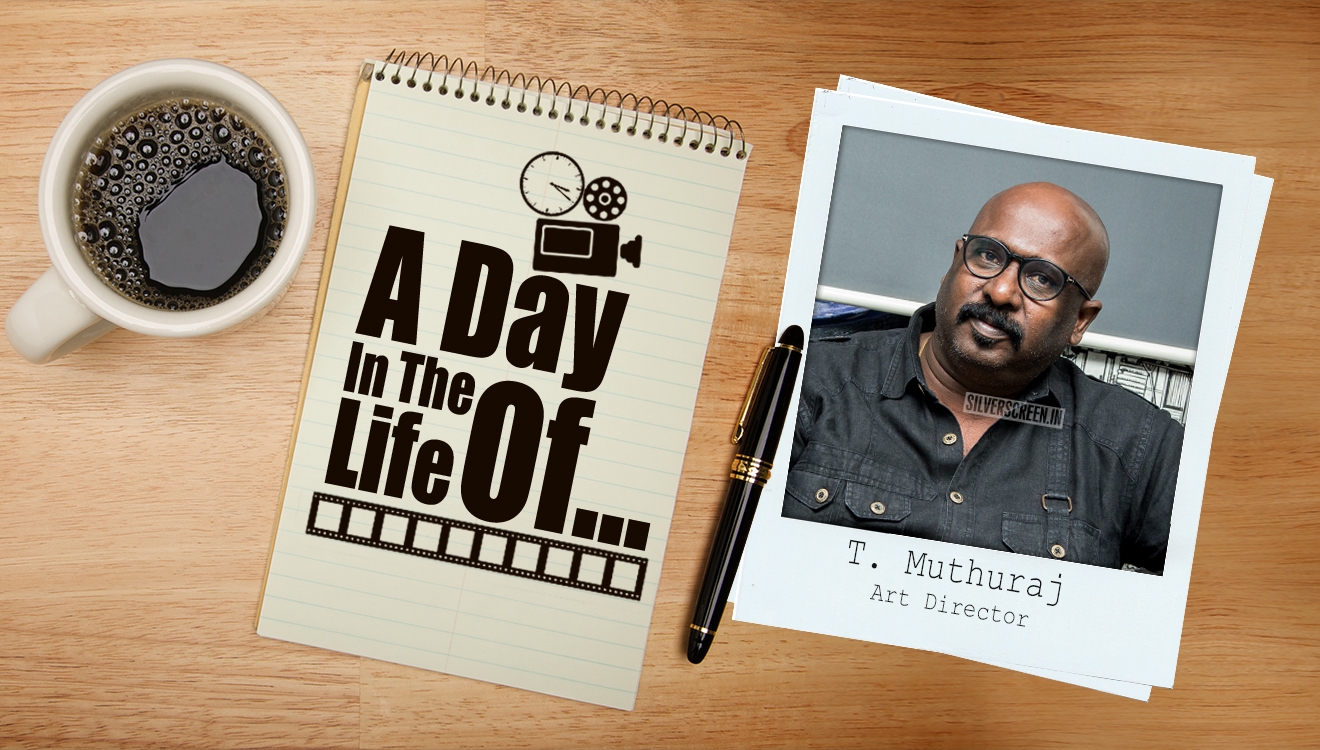One of the antagonists in Rashmi Rocket is a young sprinter, the daughter of a top official at a state-run athletics academy. The protagonist, Rashmi Veera (Taapsee Pannu), meets her on her first day at the academy, on the ground where the athletes are warming up. Almost immediately, without wasting any screen-time, the villain jeers at Veera for her Kutchi-laced Hindi, rural upbringing, and unfeminine build. The recent sprout of issue-based cinema in Bollywood teems with characters like this one – devoid of individuality or grey shade, eerily reminiscent of an internet troll.
Directed by Akarsh Khurana, Rashmi Rocket goes from being a flimsy sports movie to a flimsier courtroom drama that addresses the injustices women have to deal with in the field of sports. The film is centred on a running prodigy, Rashmi Veera, who, after winning several medals at national and international races, is subjected to a humiliating gender verification test.
The film opens with a scene of a group of policemen illegally arresting her from her hostel, alleging that “she is a man,” and cuts to an elaborate flashback – Veera’s childhood in Kutch, when her tomboyish nature wasn’t looked down upon but amusedly pointed out by the townspeople. When she runs past a street vendor, he cries out, “Is this a girl or a boy?!” Throughout the film, various characters wonder the same about Veera, although Pannu or the child actor look nothing unusual. The film establishes Veera’s ambiguous gender status using cliches such as a top-angle shot of her riding a motorbike and her choice of clothes. She likes to wear a tank-top and pants while the women in her surroundings dress in colourful traditional attires.
When she meets an army man, an eligible bachelor who can’t take his eyes off her, the film’s tone changes. In the Garba song sequence, the camera offers a close look at her bare waist and shoulders as though it wants to ask the viewers, “She looks feminine and gorgeous, doesn’t she?” The song crystallises the character’s dilemma in cheesy lines, “Cool Cool Main Chori (girl), Oh Choron (boys) I Am Very Sorry.”
Running ought to be a fun sport that, in rare gifted instances, becomes spiritual. Irrfan Khan demonstrates in Paan Singh Tomar the moments an athlete transforms into an artist, what it means to be consumed by running. Director-writer Tingmanshu Dhulia seamlessly wove Singh’s social background into the scenes of his athletic training. Paan Singh runs because he is poor and hungry. It is a quiet but magnificent form of resistance.
In Rashmi Rocket, the protagonist is a natural runner, but the film refuses to study her gift. It is conveyed to the viewers using pamphlet lines. “She is tez (fast), like a rocket,” repeat the sub-characters throughout the first half of the film. When she is sprinting, the film switches to slow-motion shots that, counterintuitively, impress upon the viewers the mundaneness of her body language. Next, the camera turns towards the onlookers faking astonishment. Running in Rashmi Rocket is devoid of thrill or a character, and is instead covered in painful mush.
In the scenes about Rashmi’s initial days at the academy, the film calls for the viewer’s attention to her struggling with the techniques. She has to catch up with the city-bred athletes who possess sophisticated methods. But there is so little to see here.
Rashmi Rocket’s central issue is the gender verification test that was used to kill the career of many female athletes across the world. Athletes such as Santhi Soundarajan and Dutee Chand, who faced the test in India, came from marginal communities. Their life makes for incredible stories about talent, perseverance, and various forms of social malaise. Rashmi Rocket erases the reality of these women and replaces them with upper-class and upper-caste bodies, unblemished and light-skinned. In the scenes from the sports academy, the female athletes, stretching their muscles in a leisurely fashion, resemble models ready to walk the ramp and pose for photographs. Using these characters who conform to Bollywood’s biases about femininity and the rural-urban divide, Khuranna seeks to shake the society’s conscience.
Recommended
Pannu looks athletic and muscular, but her efforts to stay understated accidentally strip the character of its complex shades. Priyanshu Painyuli’s supporting partner resembles a cardboard cutout. The character wears the woke badge on his sleeves but is exhaustingly bland. The only actor who manages to make an impression is Abhishek Banerjee, who plays an enthusiastic junior lawyer. His flair for humour makes the courtroom scenes watchable.
Towards the tail end, the film further intensifies Rashmi’s crisis. She gets pregnant, and now she must inform and demonstrate to the viewers that pregnancy isn’t necessarily a barrier in an athlete’s career. This narrative decision, interestingly, reflects the creative crisis Indian cinema is passing through at the moment. It isn’t enough to be socially sensitive but must be comprehensively perfect, rigid and free of human frailties, like the rulebooks at a religious retreat.
*****
This Rashmi Rocket review is a Silverscreen original article. It was not paid for or commissioned by anyone associated with the movie. Silverscreen.in and its writers do not have any commercial relationship with movies that are reviewed on the site.



